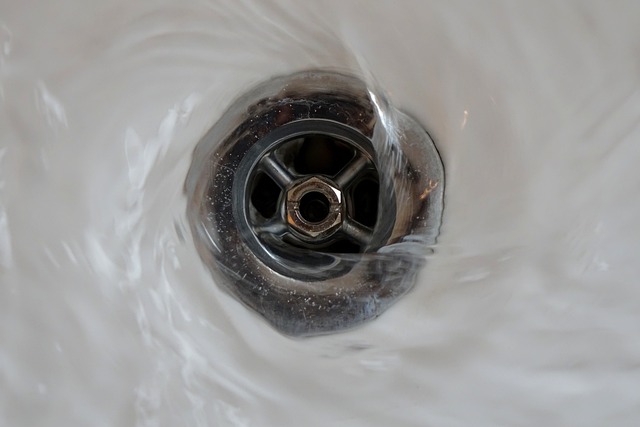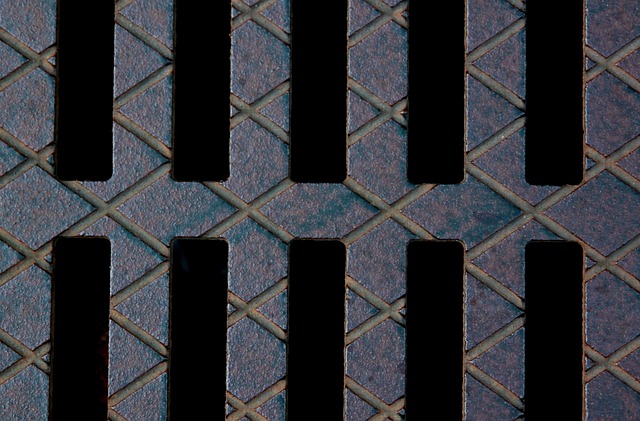Recognize early signs of clogged drains, such as slow drainage, unusual noises, and persistent sewer odors, to prevent severe plumbing issues. Act immediately on these indicators, avoiding grease, food scraps, and hair from going down the drain, and use hot water and natural solutions to break down grime. If problems persist, contact a professional plumber for resolution.
Are you tired of dealing with slow-draining sinks or showers? Knowing the signs of a clogged drain is crucial to avoid costly plumbing emergencies. This guide will equip you with the knowledge to recognize when your drain needs attention, providing timely solutions before it becomes a major headache. From subtle indications like water pooling to more evident clogs, we’ll navigate through the signs of a clogged drain and offer preventive tips for healthy plumbing.
- Recognizing the Signs of a Clogged Drain
- When to Take Immediate Action
- Preventive Measures for Healthy Drains
Recognizing the Signs of a Clogged Drain

If you’ve ever experienced a slow drain or, worse, a drain that stops working entirely, you know it can be a frustrating and costly issue. Recognizing the signs of a clogged drain early is key to avoiding larger problems and unexpected plumbing bills. Start by paying attention to changes in drainage speed. If water takes an unusually long time to drain or only flows slowly, it could indicate a clog. Additionally, strange noises coming from your drains, such as banging or gurgling, are red flags. These sounds often signal that waste is struggling to pass through the pipes, leading to a buildup of pressure and potential clogs.
Another sign to watch for is an overwhelming odor emanating from your drain. Sewers and clogged drains have distinct, unpleasant smells. If these odors persist despite cleaning or maintenance, it’s likely there’s a clog blocking proper drainage. Finally, if you notice that water backs up into the sink or tub when you flush the toilet or run water elsewhere in the house, this is a clear sign of a significant clog that requires immediate attention.
When to Take Immediate Action

If you notice persistent slow drainage or complete stoppages that don’t clear with routine maintenance, it’s time to take immediate action. While occasional clogs are normal, frequent or severe blockages can lead to more serious plumbing issues and costly repairs if left unattended. Keep an eye out for telltale signs such as water pooling around the drain, gurgling sounds coming from pipes, or a distinct sink odour – these are all indicators that your drain may be clogged.
Act swiftly when you observe any of these Signs of a Clogged Drain. Prompt intervention can help prevent damage to your plumbing system and reduce the risk of backups that could lead to unpleasant mess and health hazards. Don’t wait for the problem to escalate; reach out to a professional plumber if you’re unsure or unable to resolve the issue yourself.
Preventive Measures for Healthy Drains

To keep your drains healthy and prevent clogs, start by understanding the common causes. Grease, food scraps, hair, and other debris often accumulate in pipes, leading to obstructions. Regular preventive measures can significantly reduce these issues. First, install drain covers or catchers to trap solid particles before they enter the drain. These simple tools act as filters, catching hair, soap scum, and small objects from going down the pipe.
Additionally, be mindful of what goes into your drains. Avoid flushing grease, coffee grounds, or large food particles down the sink. Instead, use hot water to flush out any residual substances after cooking. Also, consider using enzyme-based drain cleaners or natural solutions like baking soda and vinegar to break down any built-up grime regularly, ensuring smooth drainage and preventing clogs before they become a significant problem.
Knowing the signs of a clogged drain and taking immediate action can save you from inconvenient backups and costly repairs. Regular preventive measures, such as using drain covers and avoiding disposing of certain items down the sink, are essential for maintaining healthy drains. By being proactive, you can protect your plumbing system and avoid potential nightmares. Don’t let a small clog turn into a bigger problem; be prepared and stay alert for any red flags indicating a clogged drain.
